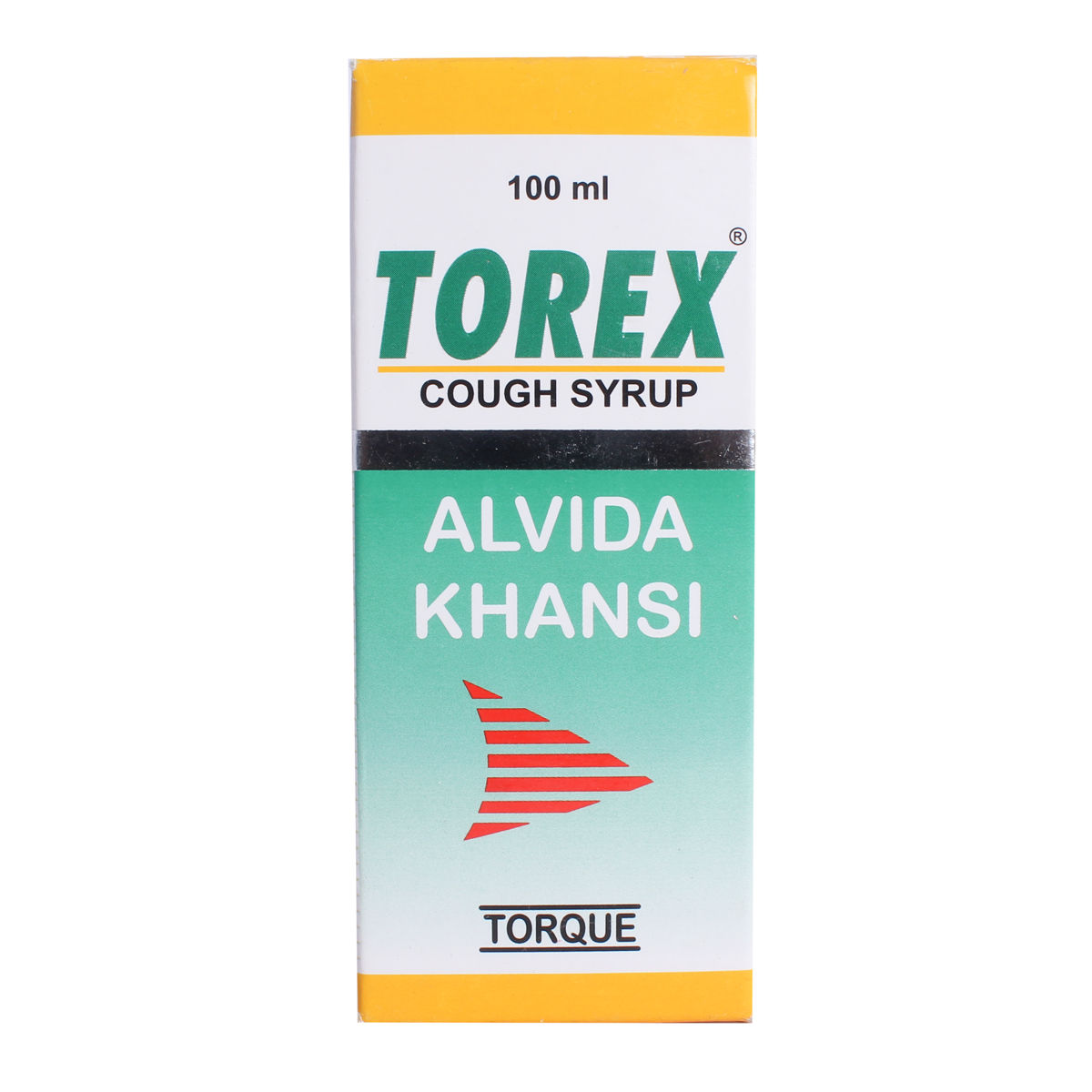Tuffex Syrup
Tuffex Syrup is used to provide relief from cough. Additionally, Tuffex Syrup may also be used in conditions such as dry cough, smoker’s cough, whooping cough, chronic cough, and post-surgical cough. It contains Ammonium chloride, Diphenhydramine, Sodium citrate, and Terpin hydrate. Ammonium chloride and Terpin hydrate help remove phlegm/mucus from the airways by decreasing its stickiness. Diphenhydramine blocks the action of a chemical substance called histamine, which is responsible for causing allergic reactions. Sodium citrate helps loosen the congestion in the chest and throat, making it easier to cough out through the mouth. Thus, It provides relief from cough.
₹56.7*
MRP ₹63
10% off
₹53.55*
MRP ₹63
15% CB
₹9.45 cashback(15%)
Free Delivery
With Circle membership
(Inclusive of all Taxes)
This offer price is valid on orders above ₹800. Apply coupon PHARMA10/PHARMA18 (excluding restricted items)
Know Your Delivery Time
Provide Delivery Location

Whats That

Secure Payment

India's Most Trusted Pharmacy

Genuine Products
About Tuffex Syrup
Tuffex Syrup belongs to a group of medicines called expectorants and cough products used to provide relief from cough. Additionally, Tuffex Syrup may also be used in conditions such as dry cough, smoker’s cough, whooping cough, chronic cough, and post-surgical cough. Coughing is the body’s way to clear irritants from the throat, lungs and airways.
Tuffex Syrup contains Ammonium chloride, Diphenhydramine, Sodium citrate, and Terpin hydrate. Ammonium chloride and Terpin hydrate help in the removal of phlegm/mucus from the airways by decreasing its stickiness. Diphenhydramine blocks the action of a chemical substance called histamine, which is responsible for causing allergic reactions. Sodium citrate helps in loosening the congestion in the chest and throat, thereby making it easier to cough out through the mouth. Together, Tuffex Syrup provides relief from cough.
In some cases, Tuffex Syrup may cause side effects such as nausea, vomiting, dizziness, diarrhoea, dry mouth, headache, and fatigue. Most of these side effects may not require medical attention and resolve gradually over time. However, you are advised to talk to the doctor if the side effects persist or worsen.
Let the doctor know if you are allergic to any of the components in Tuffex Syrup. Consult the doctor if you are pregnant or breastfeeding. Tuffex Syrup may cause dizziness, so drive only if you are alert. Keep the doctor informed about your health condition and medications to rule out any side effects/interactions.
Uses of Tuffex Syrup
Medicinal Benefits
Tuffex Syrup is a combination of four drugs, namely Ammonium chloride, Diphenhydramine, Sodium citrate, and Terpin hydrate. Tuffex Syrup is used to provide relief from cough. Additionally, Tuffex Syrup may also be used in conditions such as dry cough, smoker’s cough, whooping cough, chronic cough, and post-surgical cough. Ammonium chloride and Terpin hydrate are expectorants that help in the removal of phlegm/mucus from the airways by decreasing its stickiness. Diphenhydramine is an antihistamine that works by blocking the action of a chemical substance called histamine, which is responsible for causing allergic reactions. Sodium citrate is a mucolytic agent that helps in loosening the congestion in the chest and throat, thereby making it easier to cough out through the mouth. Together, Tuffex Syrup provides relief from cough.
Side Effects of Tuffex Syrup
- Nausea
- Vomiting
- Dizziness
- Diarrhoea
- Dry mouth
- Headache
- Fatigue
Directions for Use
Storage
Drug Warnings
Do not take Tuffex Syrup if you are allergic to any of its components. Inform the doctor if you have kidney or liver problems, breathing problems, glaucoma, bladder problems, or prostate problems. Consult the doctor if you are pregnant, planning for pregnancy or breastfeeding. Tuffex Syrup may cause dizziness, so drive only if you are alert. Let the doctor know if you take other medicines, including supplements or herbal products.
Therapeutic Class
Diet & Lifestyle Advise
- Stay hydrated by drinking plenty of water.
- Gargling with warm salt water may help remove mucus and soothe the throat.
- Avoid irritants such as dust and smoke.
- Adding garlic or honey to hot tea relieves cough and clears the airways.
- Quit smoking as it is a common contributor to cough.
- Include fibre-rich foods, vegetables and fruits in your diet.
Habit Forming
How Tuffex Syrup Works
What if I have taken an overdose of Tuffex Syrup
Alcohol
Consult your doctor
It is unknown if alcohol interacts with Tuffex Syrup. Please consult the doctor.
Pregnancy
Caution
Please consult the doctor if you are pregnant; your doctor will prescribe only if the benefits outweigh the risks.
Breast Feeding
Caution
Please consult the doctor if you are breastfeeding. Your doctor will decide if Tuffex Syrup can be taken by breastfeeding mothers or not.
Driving
Caution
In some cases, Tuffex Syrup may cause dizziness. Drive or operate machinery only you are alert.
Liver
Consult your doctor
Please consult the doctor if you have a liver impairment or any concerns.
Kidney
Consult your doctor
Please consult the doctor if you have kidney impairment or any concerns.
Children
Consult your doctor
Tuffex Syrup should be given to children only if prescribed by the doctor.
Author Details
We provide you with authentic, trustworthy and relevant information
FAQs
Disclaimer
Product Substitutes









